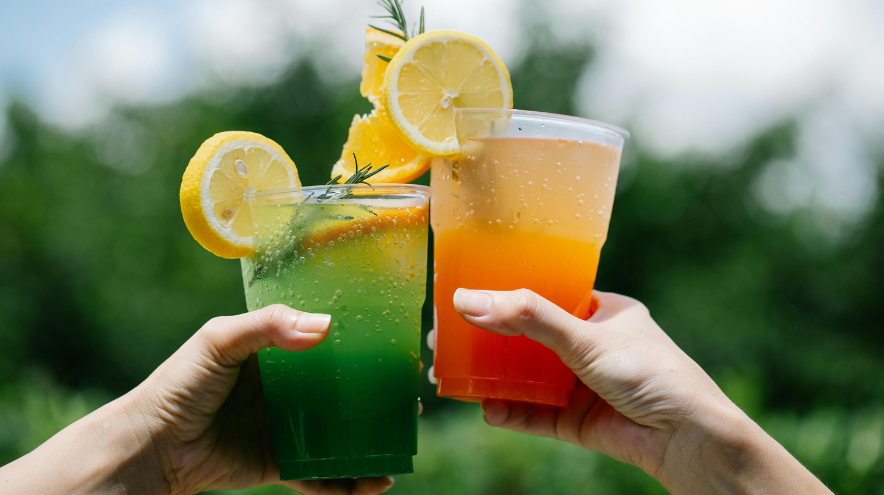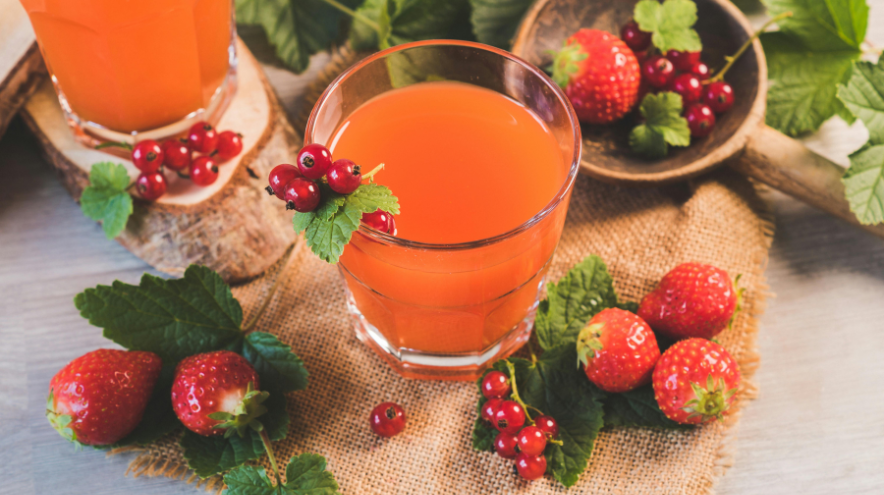Juices to Naturally Lower Blood Pressure

Managing blood pressure is crucial for overall health, especially given its impact on heart wellness. Many individuals seek natural methods to achieve this, steering clear of medication when possible. One effective strategy is incorporating fresh juices into your diet.
Juices made from nutrient-rich ingredients can provide a delicious way to lower blood pressure. They are packed with essential elements like potassium, nitrates, and antioxidants, which work together to support vascular health. By enjoying these refreshing beverages, you can take a proactive step towards revitalizing your heart health.
Benefits of Juices for Blood Pressure
affiliate link
Incorporating fresh juices into your diet can significantly benefit your blood pressure management. Juices are rich in essential nutrients like potassium, nitrates, and antioxidants, which work collectively to promote heart health. Here’s how these nutrients help:
Potassium: Balances sodium levels, which helps lower blood pressure and reduces the risk of heart-related issues.
Nitrates: Found in beets and leafy greens, they can enhance blood flow and may lower blood pressure by relaxing blood vessels.
Antioxidants: Protect against oxidative stress that contributes to hypertension, supporting overall vascular health.
Moreover, these nutrients play a crucial role in boosting nitric oxide levels in the body. Nitric oxide helps relax blood vessel walls, leading to improved circulation and lower blood pressure.
“A diet rich in potassium and nitrates can help reverse the sodium imbalance often found in American diets, potentially preventing high blood pressure.”
By choosing juices that are high in these beneficial nutrients, you can enjoy a tasty way to support your heart health naturally.
Top 10 Juices for Lowering Blood Pressure
Incorporating specific juices into your daily routine can be a delicious way to support heart health. Here are the top 10 juices known for their potential to lower blood pressure:
Beet Juice: Rich in nitrates, beet juice helps convert to nitric oxide in the blood, which relaxes blood vessels. A regular intake can significantly lower systolic blood pressure, making it a powerful choice. Learn more about beet juice benefits.
Orange Juice: Packed with flavonoids, orange juice acts as a natural antioxidant. Studies show that drinking two glasses daily can help lower blood pressure in those with hypertension. Discover the benefits of citrus.
Lemon Juice: This zesty juice contains vitamin C and potassium, both beneficial for heart health. Adding lemon to your water can promote better hydration and blood pressure regulation.
Grapefruit Juice: Like orange juice, grapefruit contains flavonoids that may help lower blood pressure. However, consult your doctor if you are on medication, as it can interact with certain drugs.
Green Apple Juice: Apples are rich in antioxidants and potassium. Green apple juice offers a refreshing taste while helping to maintain healthy blood pressure levels.

Kale Juice: Packed with vitamins and minerals, kale juice is a nutrient powerhouse. It helps reduce inflammation and supports overall cardiovascular health.
Pomegranate Juice: Known for its high antioxidant content, pomegranate juice may help improve blood flow and lower blood pressure.
Watermelon Juice: This hydrating juice is rich in citrulline, which can help improve circulation and lower blood pressure.
Celery Juice: Celery contains phthalides, which may help relax the tissues of the artery walls, promoting lower blood pressure.
Spinach Juice: Spinach is high in potassium and nitrates, making it another excellent candidate for supporting healthy blood pressure levels.
By including these juices in your diet, you can enjoy not only their refreshing flavors but also their potential health benefits for your heart.
Portion Tips and Sugar-Smart Swaps
affiliate link
Recommended Serving Sizes
When it comes to juice consumption, guidelines suggest that 100% fruit juice can count as part of your daily fruit intake. A standard serving size is 1 cup of juice, but it’s recommended that at least half of your fruit intake should come from whole fruits. This ensures you gain the additional fiber and nutrients that whole fruits provide.
Suggestions for Reducing Sugar Content
To create healthier juices, consider these sugar-smart swaps: Opt for low-sugar fruits and vegetables like cucumbers, spinach, and kale. These ingredients not only enhance flavor but also keep sugar levels in check. Additionally, diluting your juices with water or unsweetened liquids can help reduce sugar concentration without sacrificing taste.
Incorporating spices like ginger or herbs like mint can elevate flavor without added sugar. Finally, focus on using whole ingredients instead of concentrated juices, ensuring you maintain a balanced intake of vitamins and minerals.
7-Day Sipping Schedule
Incorporating juices into your daily routine can be both enjoyable and beneficial for your heart health. Below is a simple 7-day sipping schedule designed to help you lower blood pressure while adding a burst of flavor to your meals.
| Day | Juice | Pairing Suggestions |
|---|---|---|
| Monday | Beet-Citrus Juice | Pairs well with grilled salmon. |
| Tuesday | Green Apple-Kale Zing | Complement with whole grain toast. |
| Wednesday | Pomegranate Punch | Enjoy alongside a quinoa salad. |
| Thursday | Cucumber-Mint Refresh | Best with a light chicken wrap. |
| Friday | Carrot-Orange Bliss | Pairs nicely with baked sweet potatoes. |
| Saturday | Pineapple-Ginger Fusion | Great with a coconut shrimp dish. |
| Sunday | Berry-Basil Blast | Perfect alongside a yogurt parfait. |
To fit these juices into any meal plan, enjoy them as a refreshing morning boost or a mid-afternoon pick-me-up. You can also integrate them into your meals by using them as dressings, marinades, or smoothies. This flexible approach ensures that you not only enjoy delicious flavors but also enhance your overall heart health. For more tips on how to start juicing, check out this guide on incorporating juices into your diet.
Expected Results and Clinical Research
Incorporating juices, particularly those rich in nitrates like beet juice, can lead to significant reductions in blood pressure. A study from the University of Exeter found that older adults consuming concentrated beet juice experienced an average drop in systolic blood pressure of 7 mm Hg. This reduction is considered clinically significant and underscores the potential of beet juice in managing hypertension.
Moreover, a systematic review of randomized clinical trials revealed that beetroot juice supplementation is an effective strategy for lowering blood pressure through the nitrate/nitrite/nitric oxide pathway. The review indicated that beet juice can significantly decrease the risk of cardiovascular events, making it a valuable addition to a heart-healthy lifestyle.
As the authors of the Exeter study concluded, “the beet juice with nitrates improved the oral microbiome in both groups, reducing harmful bacteria and increasing beneficial bacteria.” This highlights the holistic benefits of beet juice and similar juices that can enhance cardiovascular health.
affiliate link
FAQs
Q: Is juicing healthier than eating whole fruits? A: No, juicing is not necessarily healthier. While it extracts vitamins and minerals, it also removes essential fiber, which is crucial for digestive health. Whole fruits provide more benefits due to their fiber content.
Q: Can I rely on juices for detoxing? A: Short-term juice diets, often marketed as detox cleanses, lack strong scientific support. They may not provide balanced nutrition and can pose health risks. Any weight loss is likely to be regained after returning to normal eating habits, as noted by the Mayo Clinic.
Q: How much juice should I consume daily? A: It’s recommended to limit fruit juice intake to no more than five ounces a day. This helps reduce the risk of heart disease and stroke while managing sugar intake effectively, according to Heart and Stroke.
Q: Are there any risks associated with juice consumption? A: Yes, excessive juice intake can be problematic for individuals on blood thinners or those with kidney issues. Always consult a healthcare professional before significantly increasing your juice consumption.
Conclusion
Incorporating juices into your daily routine can be a delightful way to support your heart health. These nutrient-rich drinks, packed with potassium, nitrates, and antioxidants, offer a natural approach to lowering blood pressure. By selecting juices like beet and citrus or green apple and kale, you can enjoy vibrant flavors while working towards a healthier lifestyle.
Remember, moderation is key. Limiting juice intake to no more than five ounces per day will help manage sugar consumption and ensure you reap maximum benefits. Embrace this refreshing path to wellness and make heart health a priority!






